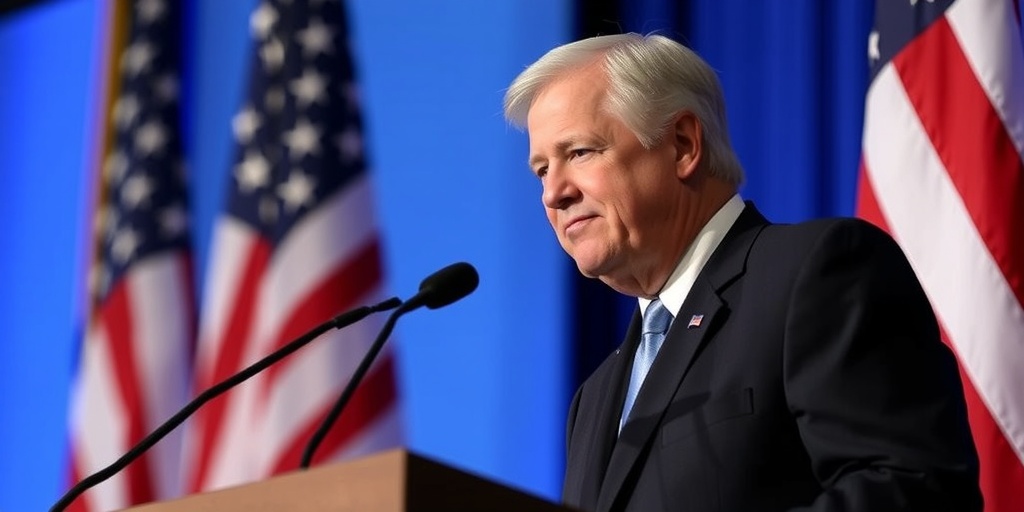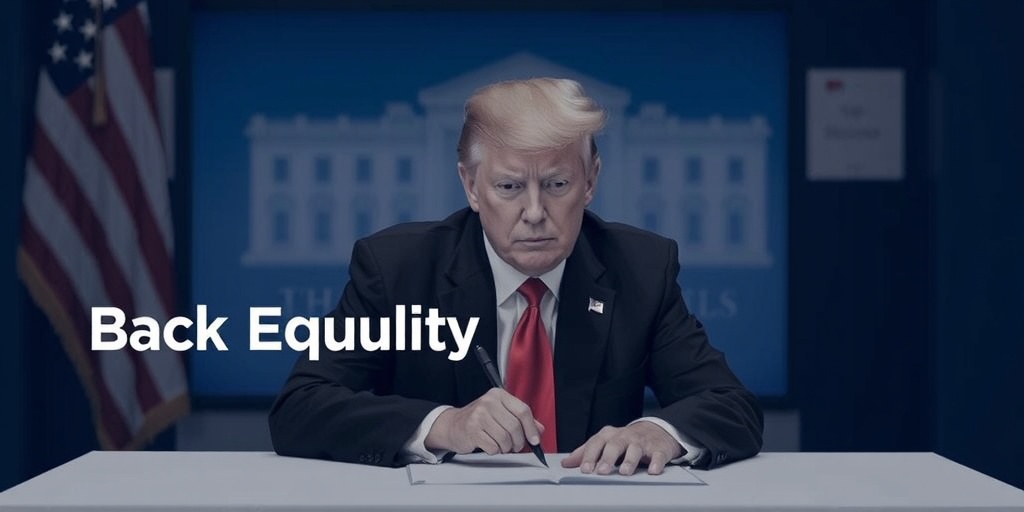Now Reading: Johnson Seeks GOP Support for Budget Plan
-
01
Johnson Seeks GOP Support for Budget Plan
Johnson Seeks GOP Support for Budget Plan

Speaker Mike Johnson Faces Internal Struggles Over GOP Budget Resolution
On Tuesday, Speaker of the House Mike Johnson grappled with a challenging scenario as he sought to secure enough votes from Republican members to pass a crucial budget resolution. The stakes were high, with potential dissent looming from both centrist Republicans concerned about the implications for Medicaid and conservatives clamoring for even steeper cuts to federal spending.
Johnson scheduled an evening vote on the budget outline, a pivotal step that could facilitate the implementation of major aspects of former President Donald Trump’s domestic policy agenda. However, uncertainty hung in the air regarding whether he could rally the necessary support for its approval. At a press conference held at the Capitol, Johnson expressed optimism, stating that Republican leaders were “very close” to attaining the votes needed but cautioned that the vote might be postponed until later in the week. “There may be a vote tonight,” he acknowledged. “There might not be.”
This situation underscored the ongoing challenges Johnson faces as he attempts to bridge the divide between the party’s different factions while managing a precariously thin majority in the House. In a climate where the margin for error is virtually nonexistent, with the potential for only one Republican defector, Johnson’s task becomes even more daunting, particularly as several members have already voiced their opposition to the proposed measure.
The proposed budget blueprint is a pivotal initial phase for Republicans who aspire to navigate a substantial fiscal package through Congress by utilizing reconciliation. This legislative maneuver enables bills to bypass the filibuster and advance in the Senate with a simple majority vote. However, the House plan is not without its controversies. It is projected to increase the deficit by approximately $3 trillion over a decade while proposing significant cuts to programs such as Medicaid and nutritional assistance for low-income families. These reductions are intended to finance about $4.5 trillion in tax cuts and include a proposal to raise the debt limit by $4 trillion.
As discussions unfolded on Tuesday morning, at least five conservative members of the GOP publicly announced their intention to vote against the budget. Representative Thomas Massie from Kentucky articulated the sentiments shared by some, questioning the rationale behind increasing the deficit while proposing tax cuts without sufficient spending reductions. “It’s insane,” he declared. “We’re going to increase the deficit with this. Why would I vote for that? You can’t cut taxes without cutting spending, and they’re not really cutting spending.”
At the same time, Republicans representing swing districts expressed discomfort with support for a budget that could lead to steep cuts in vital programs such as Medicaid and food assistance. While the budget outlines general spending targets, it leaves significant ambiguity regarding where the cuts will ultimately fall, thereby raising concerns for lawmakers from districts that rely heavily on these services. The plan specifically tasks the Energy and Commerce Committee, which oversees Medicaid and Medicare, with finding at least $880 billion in cuts, a figure that many view as implausible without enacting severe reductions to these essential programs.
Representative Juan Ciscomani from Arizona voiced his concerns about the potential ramifications of the proposed cuts, emphasizing the need to protect critical services in his district. “I’m still making my point all the way to the end about the need to protect the services that are important to my district,” he remarked. “Obviously, this is only the beginning. This is where the real fight actually begins.”
In recent days, Republican leaders have engaged in discussions with skeptical lawmakers, attempting to assuage fears that they will ultimately be cornered into endorsing substantial cuts to Medicaid and nutrition programs. The leadership argues that passing the blueprint is essential for advancing the reconciliation process, despite its non-binding nature.
Representative Dusty Johnson from South Dakota, who heads the centrist Main Street Caucus, reflected on the broader implications of the situation, stressing the importance of moving forward. He posited that the question facing the party is not whether they can achieve everything they want, but rather how to avoid a complete failure. “The question before us now is, what will move us in the right direction: failure, or a partial success?” he asked. “I think we’re going to come together around the idea that failure is the wrong option, and a partial success is far preferable.”
As deliberations continue, Speaker Johnson remains under intense pressure to navigate the treacherous waters of his party’s internal divisions while striving to fulfill campaign promises and bring the budget resolution to a successful vote. The outcome remains uncertain, but the consequences of inaction could have profound implications for the Republican agenda moving forward.
Stay Informed With the Latest & Most Important News
Previous Post
Next Post
-
 01New technology breakthrough has everyone talking right now
01New technology breakthrough has everyone talking right now -
 02Unbelievable life hack everyone needs to try today
02Unbelievable life hack everyone needs to try today -
 03Fascinating discovery found buried deep beneath the ocean
03Fascinating discovery found buried deep beneath the ocean -
 04Man invents genius device that solves everyday problems
04Man invents genius device that solves everyday problems -
 05Shocking discovery that changes what we know forever
05Shocking discovery that changes what we know forever -
 06Internet goes wild over celebrity’s unexpected fashion choice
06Internet goes wild over celebrity’s unexpected fashion choice -
 07Rare animal sighting stuns scientists and wildlife lovers
07Rare animal sighting stuns scientists and wildlife lovers





















